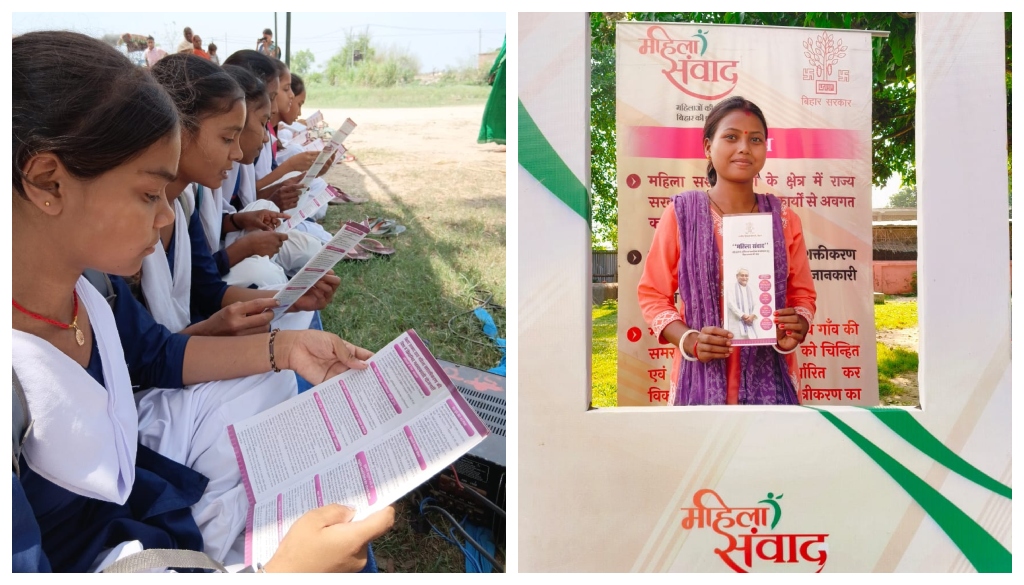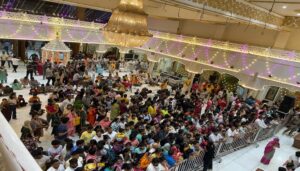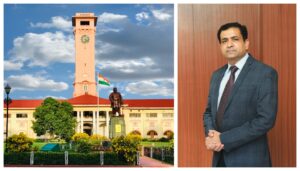Day 11 of Mahila Samvad sees rising demands for basics
From clean drinking water and toilets to local schools, skill centres and safer streets, Mahila Samvad sessions are bringing everyday rural concerns to light. Women have also shared personal stories, like reaching school faster on a government-provided cycle or running a grocery shop through a livelihood scheme, illustrating how small interventions can create lasting change.

Patna: Women from across Bihar continued to raise local concerns during Day 11 of the Mahila Samvad programme held on Monday. From requests for college access to the need for clean drinking water and safer village infrastructure, the sessions served as a platform for everyday demands.
More than 60,000 women are estimated to have participated in the sessions across multiple districts. Each event featured short documentary-style videos, followed by open discussions and the digital recording of suggestions and aspirations. The feedback collected is being documented through a mobile app for future policy consideration.
In Lakhisarai, women spoke about stopping migration through local employment and skill training. In Patna and Begusarai, demands focused on building toilets, repairing village streets and starting tailoring centres. Across districts like Supaul and Purnia, women highlighted the need for health centres, clean drinking water, drainage systems and uninterrupted electricity.
From East Champaran to Nawada, repeated requests were made for better access to girls’ education, including local secondary schools and digital classrooms. In Samastipur and Jamui, many women wanted the government to upgrade health services and establish employment-linked training hubs at the panchayat level.
In Vaishali, Gudia Devi shared how her life changed after getting a job through the reservation policy. “Earlier, I was unsure how I would run the household. The job helped my family stabilise,” she said at the Mahila Samvad session in Mahua.
In Nawada, Poonam Kumari said she no longer struggles to get to school. “The cycle I got through the government cut down my commute by more than half,” she said.
In Supaul, Sita Devi shared how she feels safer after building a toilet under the Lohia Swachh Bihar Abhiyan. “We used to go to the fields. Now we have privacy at home,” she said.
In Madhubani, a woman named Neelam Devi said she runs a small grocery shop thanks to the Satat Jeevikoparjan Yojana. “I used to depend on others for expenses. Now I earn and manage my home on my own,” she added.
Multiple women from Kishanganj and Sheikhpura asked for better public libraries, digital education tools and access to community buildings where women’s groups could meet. In Bhagalpur, concerns ranged from access to ambulances to clean cooking fuel and village street lighting.
The programme continues in other districts this week, with daily sessions planned in both morning and evening slots.





